Key Takeaways
1. Build strong relationships with your team through regular one-on-ones
"Manager Tools One On Ones are not chances "to just sit around and talk," "to get to know one another informally," or "to do a quick catch-up.""
Purpose of one-on-ones: These meetings are structured, business-focused conversations aimed at building trust and improving performance. They should be:
- Scheduled weekly for 30 minutes
- Held with each direct report
- Focused primarily on the direct report's agenda
- Documented with notes taken by the manager
Format:
- First 10-15 minutes: Direct report speaks
- Next 10-15 minutes: Manager speaks
- Final 5-10 minutes (if time allows): Discuss future plans or big picture items
Benefits:
- Improved communication and trust
- Regular opportunity for feedback and coaching
- Reduced interruptions throughout the week
- Better understanding of team members' strengths and challenges
2. Deliver effective feedback to encourage future behavior
"The purpose of performance communications (and therefore feedback) is to encourage effective future behavior."
The Manager Tools Feedback Model:
- Ask permission to give feedback
- State the observed behavior
- Describe the impact of the behavior
- Encourage effective future behavior or express appreciation
Key principles:
- Focus on specific, observable behaviors, not attitudes or intentions
- Be timely – deliver feedback as soon as possible after the event
- Keep it brief – aim for 15-30 seconds per feedback instance
- Use a neutral tone, avoiding anger or judgment
Examples:
- Positive: "When you stayed late to help the new hire, it showed great teamwork. Thank you."
- Constructive: "When you interrupt during meetings, it disrupts the flow. Can you work on letting others finish before speaking?"
3. Coach your team members to improve their performance
"Coaching is the least often used tool in the "Management Trinity.""
The Manager Tools Coaching Model:
- Collaborate to set a goal (use DBQ: Deadline, Behavior, Quality)
- Brainstorm resources together
- Create a short-term action plan
- Direct acts and reports on progress regularly
Effective coaching practices:
- Focus on specific skills or behaviors to improve
- Set clear, measurable goals with realistic deadlines
- Break down larger goals into small, actionable steps
- Provide regular check-ins and feedback during one-on-ones
- Adjust the plan as needed based on progress and challenges
Benefits:
- Improved individual and team performance
- Increased employee engagement and motivation
- Development of future leaders within the organization
4. Delegate responsibilities to develop your team and yourself
"Learning to delegate is part of the transition to becoming an executive."
Why delegation matters:
- Allows managers to focus on higher-level responsibilities
- Develops team members' skills and confidence
- Prepares both manager and team for future growth
Effective delegation strategies:
- Start with smaller tasks and gradually increase responsibility
- Provide clear instructions and expectations
- Offer support and resources as needed
- Follow up regularly to ensure progress and provide feedback
- Resist the urge to micromanage or take back delegated tasks
Overcoming delegation challenges:
- Trust your team members' abilities
- Accept that their approach may differ from yours
- View mistakes as learning opportunities
- Recognize that short-term inefficiency leads to long-term gains
5. Prioritize results and retention as a manager
"The Definition of an Effective Manager Is One Who Gets Results and Keeps Her People"
Key responsibilities:
- Achieve organizational goals and objectives
- Retain talented team members
Strategies for achieving results:
- Set clear, measurable goals aligned with organizational priorities
- Regularly communicate expectations and progress
- Provide necessary resources and support
- Hold team members accountable for their commitments
Strategies for improving retention:
- Build strong relationships through one-on-ones
- Offer opportunities for growth and development
- Recognize and appreciate good work
- Address issues promptly and fairly
- Create a positive team culture
Balancing act: Recognize that pushing too hard for results can negatively impact retention, while focusing solely on retention may compromise results. Strive for a balanced approach that achieves both objectives.
6. Communicate clearly about performance expectations
"Your first responsibility is to deliver whatever results your organization expects from you."
Setting clear expectations:
- Identify key performance indicators (KPIs) for each role
- Communicate goals and standards in writing
- Discuss expectations during one-on-ones and team meetings
- Provide specific examples of what success looks like
Monitoring and discussing performance:
- Use regular check-ins to assess progress
- Deliver timely feedback (both positive and constructive)
- Address performance issues promptly
- Celebrate successes and milestones
Documentation:
- Keep notes on performance discussions
- Document specific instances of good and poor performance
- Use these records for formal reviews and development planning
7. Develop trust through consistent and purposeful interactions
"Generally, the more a team trusts its manager, the better the results will be, and the better the retention as well."
Building trust:
- Be consistent in your words and actions
- Follow through on commitments
- Show vulnerability and admit mistakes
- Actively listen to team members' concerns and ideas
- Maintain confidentiality when appropriate
Trust-building opportunities:
- One-on-ones
- Team meetings
- Informal interactions
- Challenging situations or conflicts
Benefits of high trust:
- Improved communication and collaboration
- Increased willingness to take risks and innovate
- Higher levels of engagement and commitment
- Faster problem-solving and decision-making
8. Balance positive and negative feedback for optimal impact
"Positive feedback is a much more powerful tool than negative feedback. Don't wait your entire career to finally realize that."
Feedback ratio:
- Aim for a 3:1 or 4:1 ratio of positive to negative feedback
- Look actively for opportunities to provide positive feedback
Positive feedback strategies:
- Be specific about the behavior and its impact
- Link the behavior to organizational goals or values
- Encourage continuation of the positive behavior
Constructive feedback strategies:
- Focus on the behavior, not the person
- Explain the impact of the behavior
- Collaborate on solutions for improvement
- Follow up to ensure change and provide support
Timing:
- Deliver both positive and negative feedback as soon as possible after the observed behavior
- Use one-on-ones for more detailed performance discussions
9. Use a structured approach to goal-setting and coaching
"Manager Tools defines coaching as a systemic effort to improve the performance of a direct in a specific skill area."
DBQ goal-setting framework:
- Deadline: When should the goal be achieved?
- Behavior: What specific action or skill needs improvement?
- Quality: How will success be measured?
Example: "By March 1st (Deadline), you will contribute at least five times (Quality) in the weekly operations meeting without interrupting others (Behavior)."
Coaching process:
- Identify the skill or behavior to improve
- Set a clear, measurable goal using DBQ
- Brainstorm potential resources and strategies
- Create a short-term action plan with specific tasks
- Monitor progress and provide regular feedback
- Adjust the plan as needed based on results
Keys to success:
- Break down larger goals into small, actionable steps
- Use short deadlines (1-3 days) for initial tasks to build momentum
- Leverage various learning methods (reading, mentoring, practice)
- Celebrate small wins and progress along the way
10. Adapt your management style as you advance in your career
"Mike realized he individually was able to do more because he himself had been trusted with more to do along the way."
Career progression shifts:
- Individual contributor → Manager: Focus shifts from personal output to team results
- Manager → Executive: Emphasis moves from tactical to strategic thinking
Key adaptations:
- Delegate more responsibilities as you advance
- Develop your team members to take on larger roles
- Build relationships across the organization
- Focus on long-term planning and big-picture thinking
- Spend more time on communication and alignment
Challenges to overcome:
- Resistance to letting go of familiar tasks
- Fear of losing control or relevance
- Difficulty trusting others with important responsibilities
Strategies for success:
- Actively seek opportunities to delegate and develop others
- Celebrate team successes rather than individual accomplishments
- Invest time in mentoring and coaching high-potential team members
- Continuously learn and adapt to new leadership challenges
- Build a network of peer support and mentorship
Last updated:
FAQ
What's "The Effective Manager" by Mark Horstman about?
- Focus on People Management: The book is centered on managing people effectively, rather than focusing on broader organizational strategies like finance or change management.
- Actionable Guidance: It provides practical, step-by-step advice for managers to improve their skills in managing direct reports.
- Core Responsibilities: The book emphasizes achieving results and retaining employees as the primary responsibilities of a manager.
- Manager Tools Framework: It introduces the Manager Tools framework, which includes specific tools and behaviors to enhance managerial effectiveness.
Why should I read "The Effective Manager"?
- Practical Advice: The book offers actionable steps that managers can implement immediately to improve their effectiveness.
- Focus on Results and Retention: It provides a clear framework for achieving the dual goals of delivering results and retaining team members.
- Proven Methods: The guidance is based on data and extensive testing with thousands of managers, ensuring its reliability and effectiveness.
- Comprehensive Approach: It covers a wide range of managerial skills, from communication to delegation, making it a valuable resource for both new and experienced managers.
What are the key takeaways of "The Effective Manager"?
- Four Critical Behaviors: The book outlines four key behaviors for effective management: Get to Know Your People, Communicate about Performance, Ask for More, and Push Work Down.
- Manager Tools: It introduces specific tools like One On Ones, Feedback, Coaching, and Delegation to implement these behaviors.
- Focus on Relationships: Building strong relationships with direct reports is emphasized as a foundation for effective management.
- Sustainable and Teachable: The methods are designed to be teachable to others and sustainable over time, ensuring long-term success.
What is the Manager Tools Feedback Model?
- Four Steps: The model consists of four steps: Ask, State the Behavior, State the Impact, and Encourage Effective Future Behavior.
- Purpose: The goal is to encourage effective future behavior rather than focusing on past mistakes.
- Positive and Negative Feedback: The model is used for both positive and negative feedback, maintaining a consistent approach.
- Scripted Approach: It provides a scripted method to help managers deliver feedback effectively and consistently.
How do One On Ones work in "The Effective Manager"?
- Scheduled Meetings: One On Ones are scheduled, weekly 30-minute meetings with each direct report.
- Direct's Agenda First: The direct's issues are prioritized, with the manager taking notes to ensure follow-up.
- Builds Relationships: These meetings are designed to build trust and improve communication between managers and their teams.
- Proven Benefits: Regular One On Ones have been shown to improve both results and retention significantly.
What is the Delegation Cascade in "The Effective Manager"?
- Workload Management: The Delegation Cascade is a method for managing workload by delegating tasks down the organizational hierarchy.
- Delegating Small Tasks: Managers should delegate smaller tasks to their directs, rather than large responsibilities, to avoid overwhelming them.
- Organizational Growth: This approach supports organizational growth by allowing managers to focus on higher-level responsibilities.
- Cascading Effect: As tasks are delegated down, each level of the organization becomes more efficient and effective.
How does "The Effective Manager" define an effective manager?
- Results and Retention: An effective manager is defined as one who achieves results and retains their people.
- Focus on People: The book emphasizes the importance of managing people effectively to achieve these goals.
- Clear Responsibilities: Managers are responsible for delivering results and ensuring their team members are satisfied and engaged.
- Measurable Success: Success is measured by both the outcomes achieved and the retention of team members.
What are the Four Critical Behaviors in "The Effective Manager"?
- Get to Know Your People: Building strong relationships with direct reports is crucial for effective management.
- Communicate about Performance: Regular feedback and communication about performance are essential for improvement.
- Ask for More: Managers should continually encourage higher levels of performance from their team.
- Push Work Down: Delegating tasks effectively allows managers to focus on higher-level responsibilities.
How does "The Effective Manager" suggest handling resistance to One On Ones?
- Common Pushbacks: The book addresses common objections such as perceived micromanagement and lack of time.
- Role Power: Managers are encouraged to use their role power judiciously to insist on the importance of One On Ones.
- Building Trust: Overcoming resistance involves building trust and demonstrating the value of these meetings.
- Long-term Benefits: Emphasizing the long-term benefits of improved communication and relationships can help mitigate resistance.
What is the Coaching Model in "The Effective Manager"?
- Four Steps: The Coaching Model includes Collaborate to Set a Goal, Collaborate to Brainstorm Resources, Collaborate to Create a Plan, and The Direct Acts and Reports on the Plan.
- Collaborative Approach: The model emphasizes collaboration between the manager and the direct report throughout the process.
- Focus on Improvement: It is designed to help direct reports improve specific skills over a period of months.
- Short-term Tasks: The model uses short-term tasks and deadlines to drive behavior and ensure progress.
What are the best quotes from "The Effective Manager" and what do they mean?
- "Success at work is about what you do—you are your behaviors." This emphasizes the importance of actions over attitudes in achieving success.
- "The most important thing you can do as a manager is to develop a trusting relationship with the people on your team." This highlights the foundational role of trust in effective management.
- "If you implement Manager Tools One On Ones, we guarantee that you will get more time back in your calendar than you spend in having them." This underscores the efficiency and effectiveness of regular One On Ones.
- "Choose the harder right, instead of the easier wrong." This encourages managers to make ethical and challenging decisions for the benefit of their team and organization.
How does "The Effective Manager" address the issue of favoritism?
- Equal Treatment: The book emphasizes the importance of treating all directs equally, especially in the context of One On Ones.
- Friendly, Not Friends: Managers are advised to be friendly with their directs but not to form friendships that could lead to perceived favoritism.
- Professional Boundaries: Maintaining professional boundaries helps ensure that all team members feel valued and fairly treated.
- Focus on Performance: Decisions and interactions should be based on performance and professional criteria, not personal relationships.
Review Summary
The Effective Manager receives mostly positive reviews for its practical, data-driven approach to management. Readers appreciate its focus on four key behaviors: one-on-ones, feedback, coaching, and delegation. The book is praised for its straightforward advice and actionable strategies, particularly useful for new managers. Some criticize its repetitive style and outdated views on remote work. Overall, it's considered a valuable resource for learning essential management skills, though some suggest complementing it with other leadership books for a more comprehensive understanding.
Similar Books


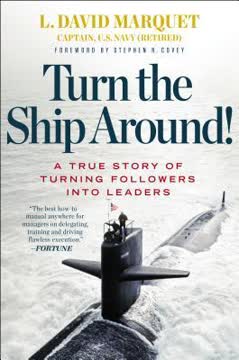

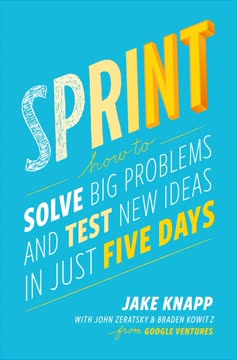
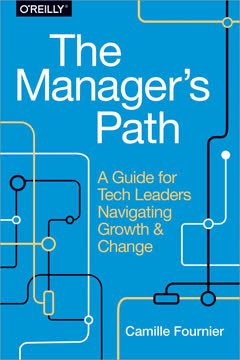
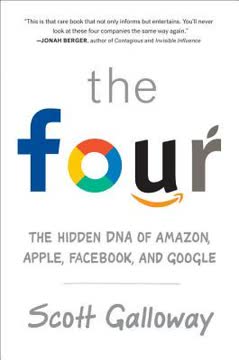

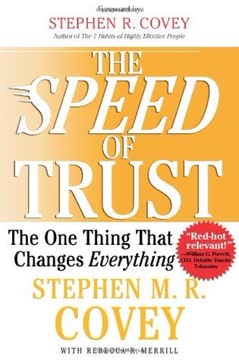

Download PDF
Download EPUB
.epub digital book format is ideal for reading ebooks on phones, tablets, and e-readers.




